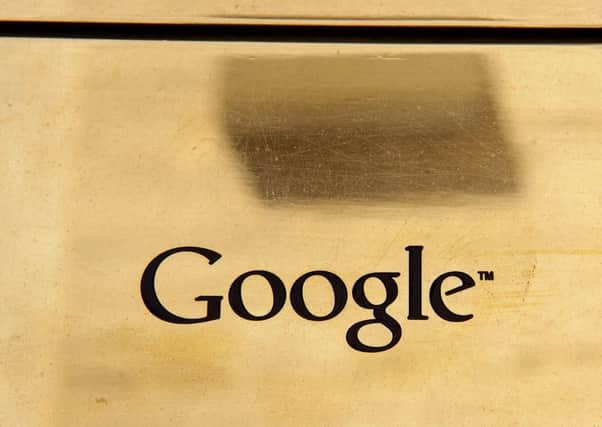Dani Garavelli: Youthful follies follow you online


IN the movie Eternal Sunshine Of The Spotless Mind, a couple who have been through a painful break-up go separately to a clinic to have their memories of each other obliterated. It’s a poignant film which reflects on the power of the past and the relative merits of clinging on to it and blocking it out. The title is taken from an Alexander Pope poem, which includes the lines: “Oh happy is the blessed vestal’s lot, the world forgetting and by the world forgot”. And who cannot identify with that? Who doesn’t sometimes crave to erase or be erased from the public consciousness? Who has never yearned for the opportunity to wipe the slate clean? No technology yet exists which allows us to rid us of our memories so we are fated to spend long, dark nights reliving the worst of them. And as for other people? Their ability to recall our humiliation depends on how well-disposed they are towards us. How keen to see us fail. How willing to cut us some slack.
What may now be possible, however, is to take control of our virtual imprint, to modify our online history in such a way that the good is easy to access, the bad buried deep in cyberspace. Such is the promise offered by the European Court of Justice’s Right to be Forgotten ruling. Last week, two judges concluded people do have the right to ask Google and other search engines to delete links to “irrelevant or inadequate” material relating to their pasts. The case was brought by Mario Costeja González and it was, for him, a pyrrhic victory. As a result of his legal battle, millions who would never otherwise have come across him know his repossessed home was auctioned to repay debts in 1998 – the very fact he hoped to make disappear. Still, on the back of his success, Google is being bombarded with pleas for other individuals’ histories to be cleansed.
Advertisement
Hide AdAdvertisement
Hide AdIn many circumstances, such pleas seem perfectly reasonable. It is a basic tenet of a civilised society that everyone deserves a second chance. On the internet, however, our youthful follies continue to haunt us long after we’ve embraced respectability. That ill-advised joke about the death of a celebrity. That newspaper report of the arrest at the student protest. That photo of vomiting in a club in Ibiza. They are all floating around in the recesses of the internet’s less-than-spotless mind waiting to be summoned up by a partner, a child or a prospective employer. Why shouldn’t Paris Brown ask Google to “forget” the adolescent tweets that lost her the job as the country’s first youth crime commissioner? And isn’t it fair that links to a restaurant’s bad reviews should be deleted after a new chef is hired?
Unfortunately, however, you only have to look at those who have already applied to whitewash their history to see how this is likely to end. The 1,000 people who have approached Google so far include an ex-MP seeking re-election, a man convicted of possessing images of child abuse, and a GP who attracted negative reviews from his patients.
Setting aside the logistics of implementing the ruling, the danger is it will be used not to hide some minor social faux pas, but to cover up information which is in the public interest. With search engines left to judge what is “relevant” and “adequate”, whole swathes of inconvenient truths could disappear into a Orwellian memory hole until we are presented with a sanitised version of the world.
The practical implications of the ruling, which cannot be appealed, are huge. It will take teams of compliance staff to enforce it and it will apply only in Europe, which opens up the prospect of US citizens viewing information on UK citizens that UKcitizens are denied.
The fear is that instead of judging each case on its own merits, the sheer enormity of the task might lead Google and other search engines to acquiesce to demands just to cover their own backs, though, wherever a link was deleted, it could be replaced by a message explaining its absence, which would at least draw attention to the individual’s attempt to alter his or her past.
Even so, the attempt to force search engines to tamper with the past has disturbed pro-democracy campaigners, such as Index on Censorship, which said the ruling amounted to “a violation of the basic principles of freedom of expression”. As for the vulnerable, there must be better ways to protect them. Revenge porn – sexually explicit images distributed online without the consent of the subject – could be criminalised, as it is inIsrael. Guidelines could be introduced to dissuade employers from snooping on applicants’ Facebook pages. Greater emphasis could be placed on teaching young people the consequences of posting on a public forum.
All this is preferable to trying to erase the past. Privacy is important, but even if you’re Max Mosely and you believe your weird sexual practices should remain a secret, tinkering with collective memory is an exercise in propaganda.
As truth and reconciliation commissions have demonstrated, it is better to confront mistakes than to bury them. And it seems weird that, as governments strive for more transparency – see Clare’s Law which would allow women to find out if their partner has a history of domestic abuse – this court is trying to shut it out. In the end, “the right to access information which might protect us” trumps the “right to be forgotten”. If this means some of us have to put up with our names being forever linked with a night on the tiles, then it’s a price worth paying. «
Twitter: @DaniGaravelli1